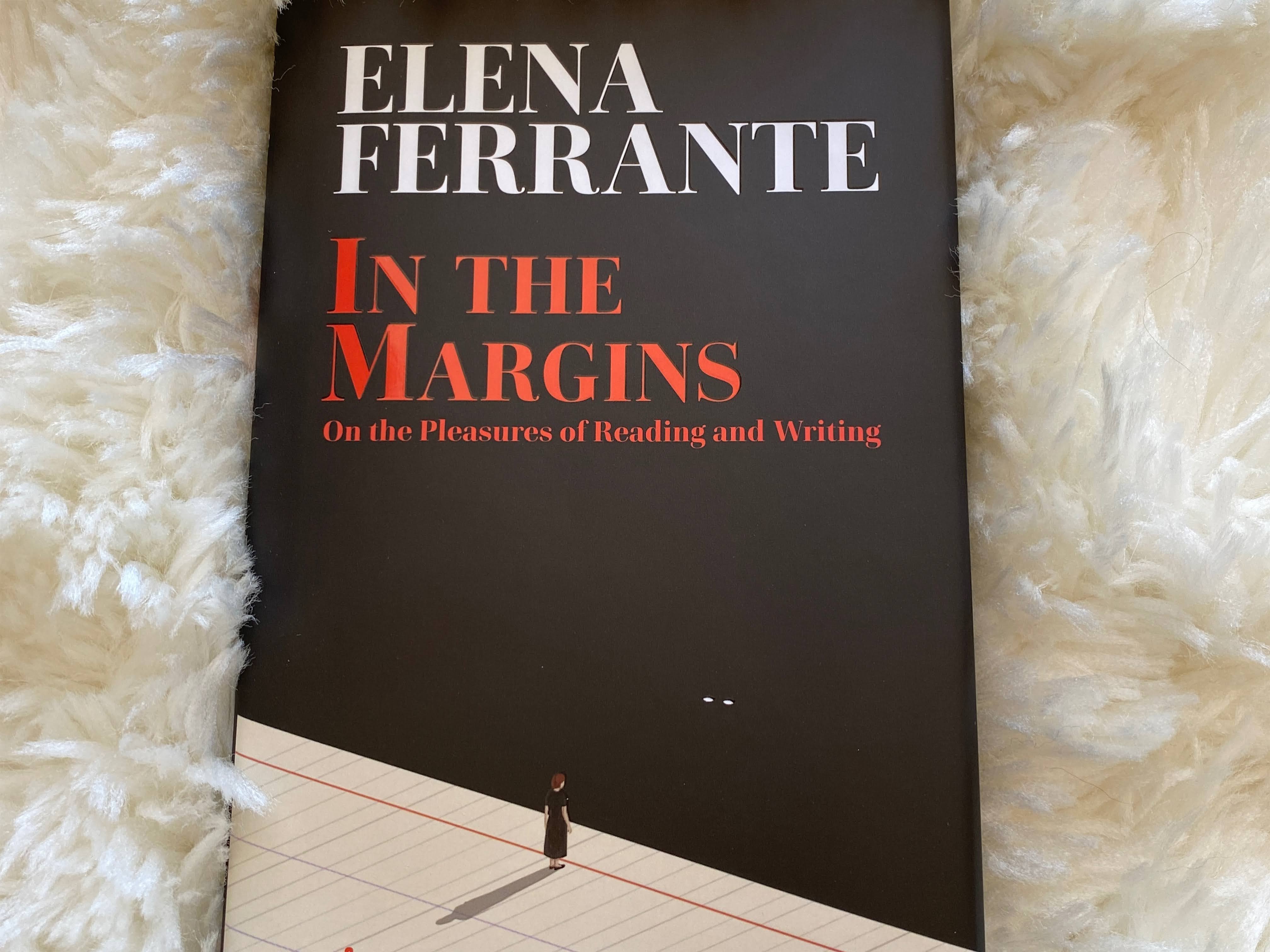In The Margins: On The Pleasure of Reading and Writing

Author, Elena Ferrante was invited to a public three-part lecture series at the University of Bologna in 2020, since the Covid-19 Pandemic curtailed those lectures, Ms. Ferrante wrote this little book filled with so many wonderful nuggets of her early experiences of reading and writing and the inspiration that touched her from other authors changing how she writes.
As a child, we are told to stay within the red/blue margins on the pages. Ferrante watched little Cecilia write her name on a piece of paper crossing over lines both horizontal and parallel, she started thinking about the education we receive to stay in those lines so that we have neat, tight writing easier to read. It made me curious— is that for the student or really for the teacher, so she could grade the paper? Conformity to me is never a good thing, but a squelcher of our own self.
Because of that rigidity, writing In The Margins made Ferrante wonder,
I believe that the sense I have of writing—and all the struggles It involves—has to do with the satisfaction of staying beautifully within the margins and, at the same time, with the impression of loss, of waste, because of that sucess.
Ferrante uses so many wonderful international authors to piece her writing style, her growth as a writer, and the fact that writers become better if they are also good readers. Like Stephen King's book On Writing, this In The Margins is a great start to how your voice needs to reverberate in your writing, how taking risks emotionally can bring you deeper to being your own writer instead of just following some imaginary format that we believe we need to write such as Shakesphere, Hemmingway, all the male greats as there weren't enough female greats to emulate when she was an adolescent.
According to Ferrante, there are two kinds of writing that she knows of... it is compliant and impetuous. Like staying in the margins, she started out as compliant. As she became a more seasoned writer, she decided to take risks, she wrote with her own voice. Telling us that like the author, Italo Svevo says, "everything begins with Pencil and Paper..."
"...the I of the writer seperates from its own thought and, in the seperation, sees that thought. It's not a fixed, well-defined image. The thought-vision appears as something in motion—it rises and falls—and its task is to make itself evident before disappearing. "
This idea makes me think that there is an Eternal Eye, and then there is the Seeing "I". The Eternal Eye is that deeper writing, the writer forgets that they are writing, and someone else is speaking internally, whereas the Seeing "I" is visual, that is only typing words on a piece of paper, describing things without the reader needing to read between the lines, the seeing "I" is when you stay within the margins. The Eternal Eye is the one that crosses the lines into something not read before, which connects deeper with the reader.
Ferrante finishes her first chapter (first lecture) by saying,
"Beautiful writing becomes beautiful when it loses its harmony and has the desperate power of the ugly."
The next chapter —Aquamarine, covers Ferrante's evolving Impetuous writing (second lecture), and the last chapter—Dante's Rib (the third lecture) covers how Dante's poems gave the best description of how to write, and this gave Ferrante through her love of reading, a desire to write as he did—obsessively, literally, and figuratively.
I am not going to cover the last two chapters as I truly believe that the magic comes from reading for yourself. That ability to glean from someone's writing when reading it for the first time makes things a little poignant to that deep soul internalization we writers, and readers get from great writing.
In The Margins is definitely a must-read for those who need the inspiration to take their writing to a higher plain.
"Not Dante. He—perhaps more than any other great writer, past or future—knew and feared and fought the inadequacy of writing, in fact considered it part of the limited and transient nature of the human."
Comments
Post a Comment